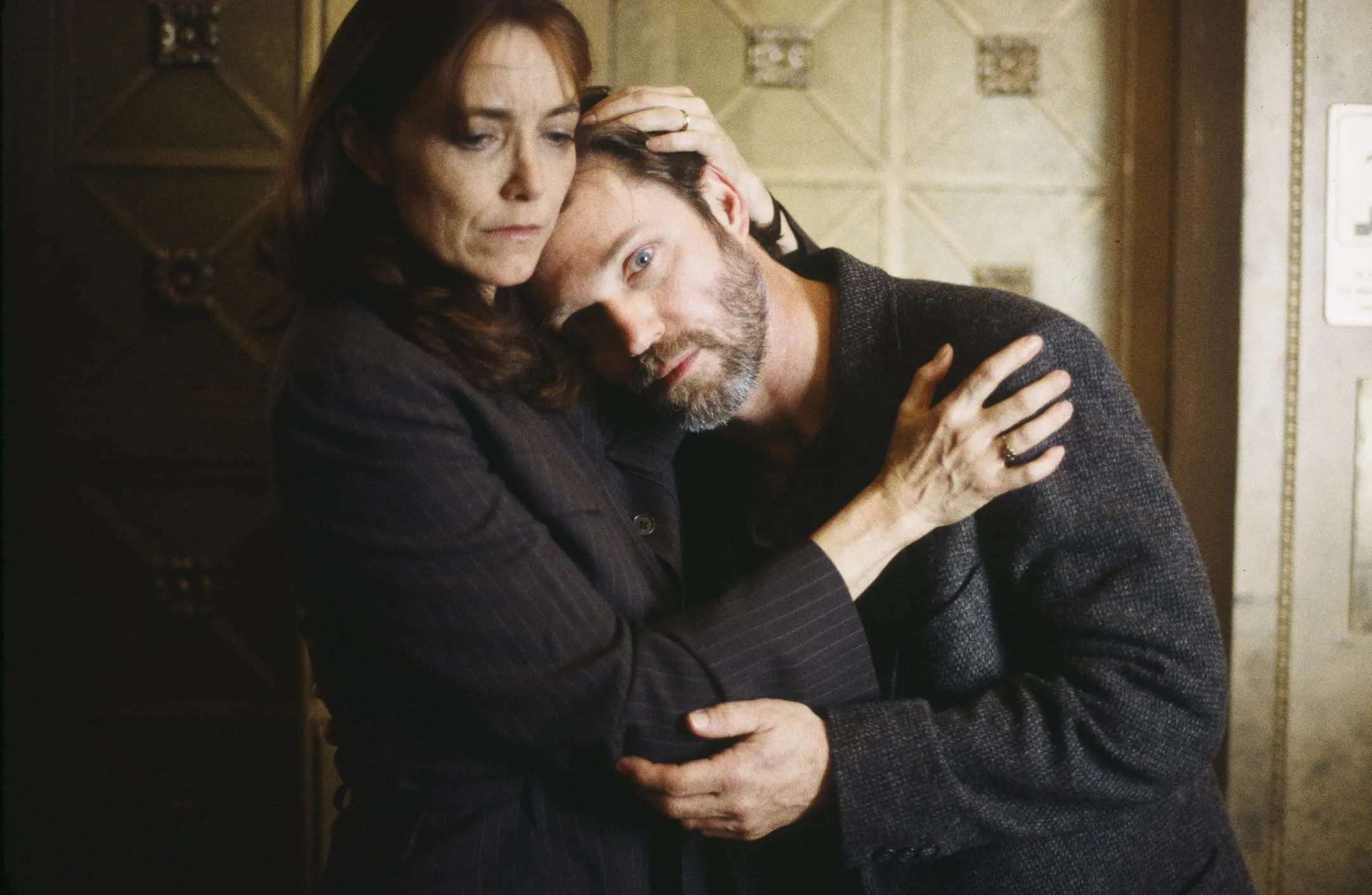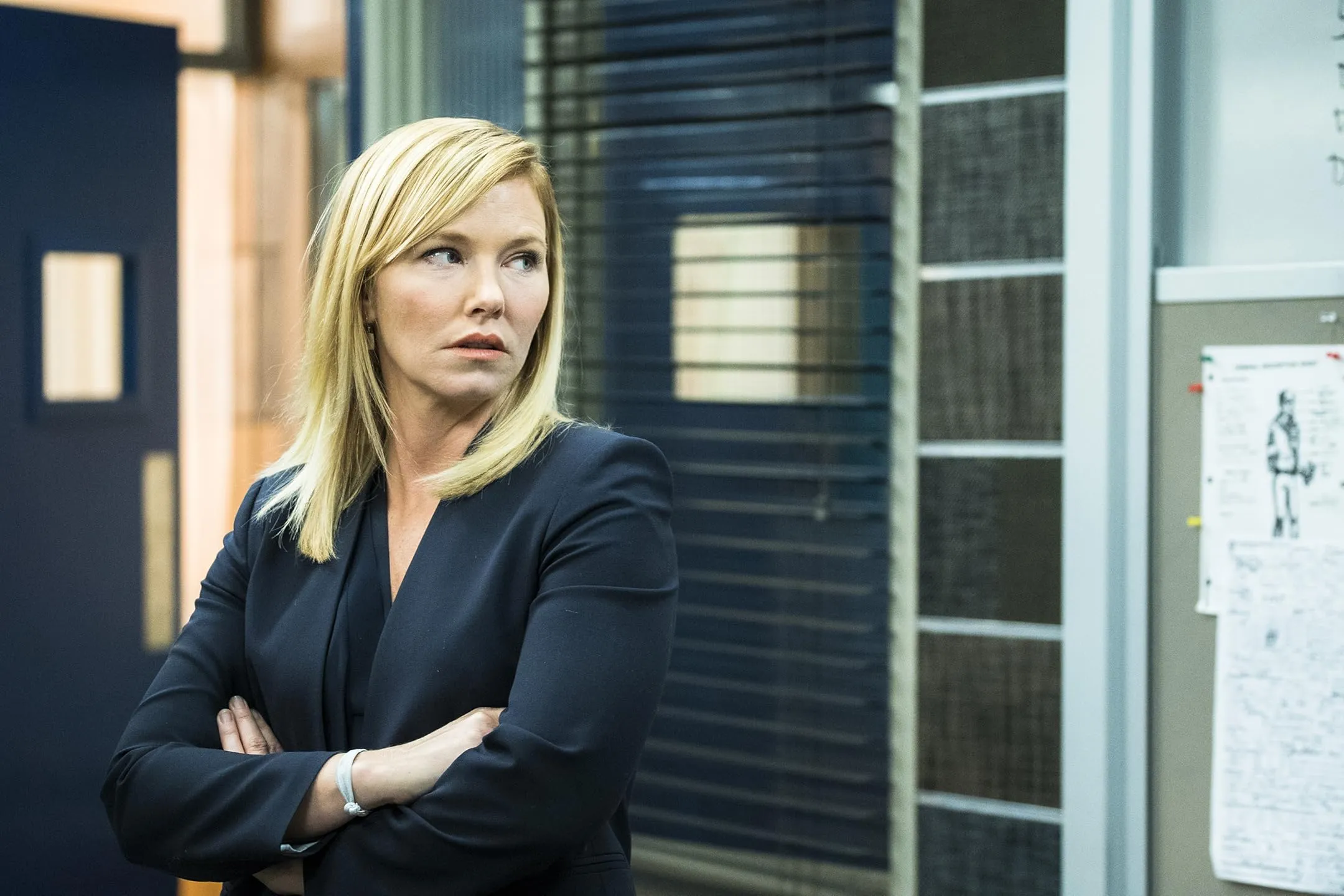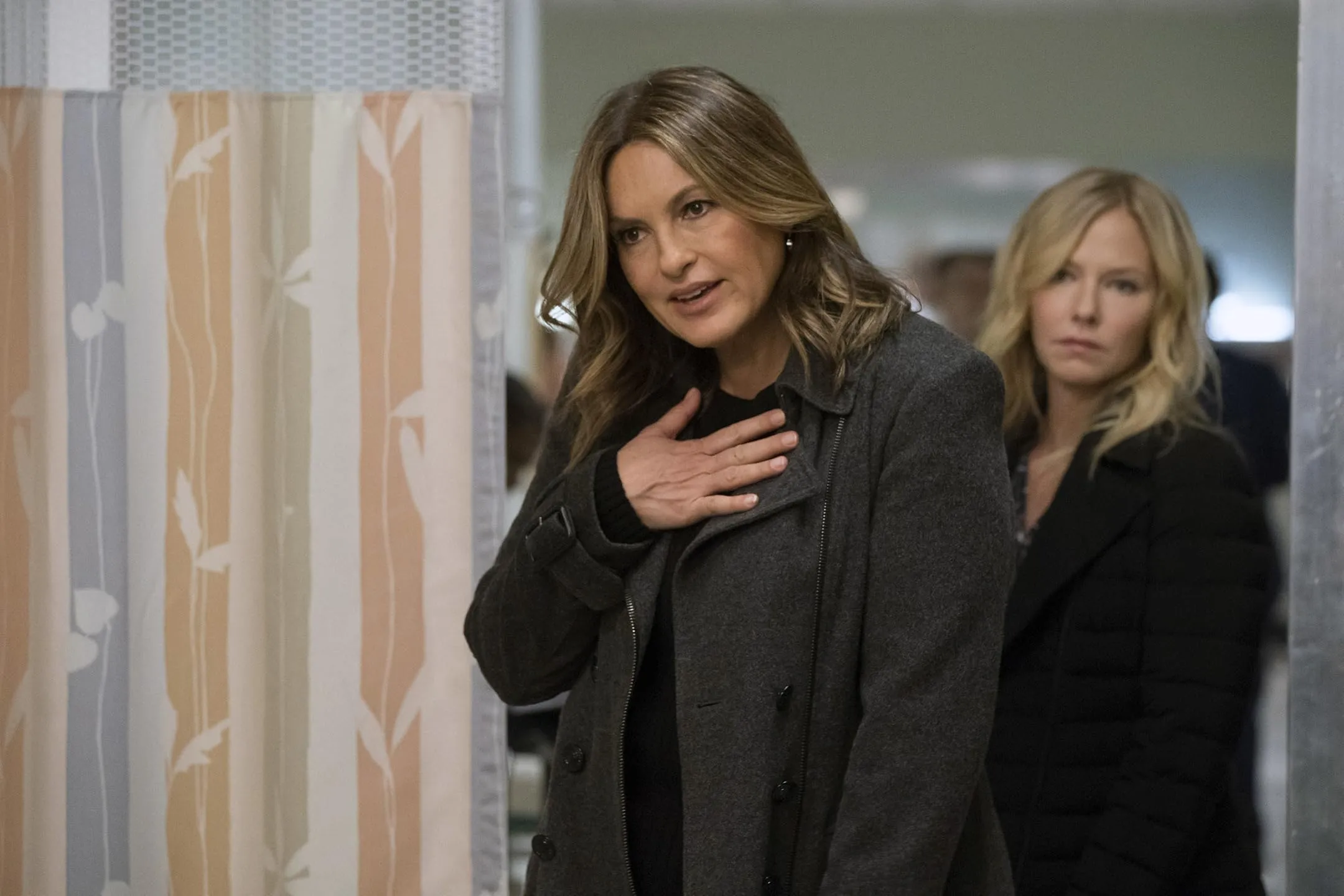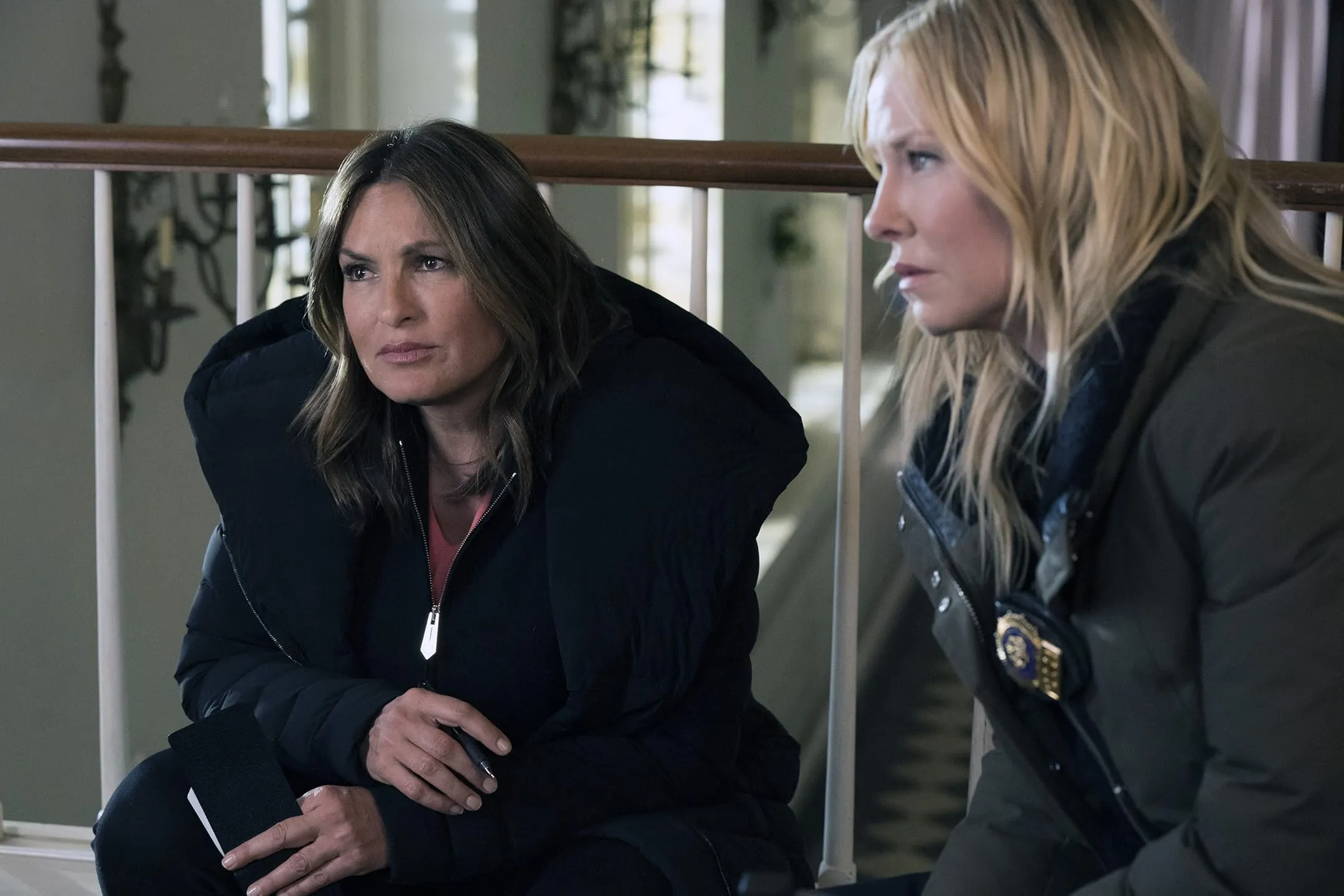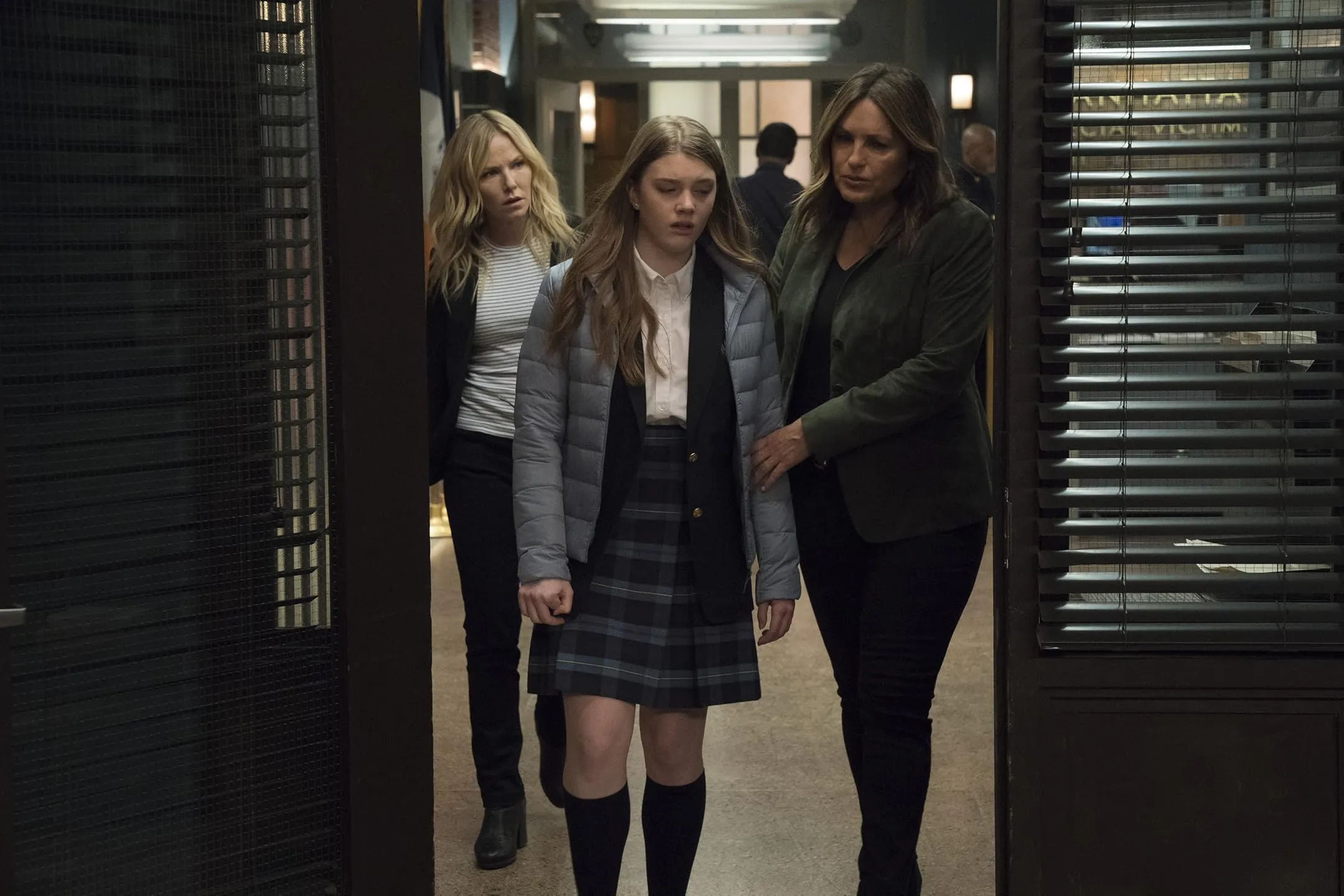For over two decades now, Law & Order: Special Victims Unit has shone a light on harrowing crimes and brought justice for survivors. Through it all, one woman’s steady guidance has anchored the show: Captain Olivia Benson. Played with nuanced empathy by Mariska Hargitay, Benson started as a detective and worked her way up, solving cases while navigating personal struggles we’ve watched alongside her.
Now, as Season 26 begins, Benson leads a new generation of investigators. But how does this latest batch of episodes hold up? What issues are explored, and how successfully? Let’s take a look behind the scenes of this historic series to find out where it’s going.
The season premiere introduces a disturbing crime on a college campus. Meanwhile, newest special agent Kate Silva joins the squad, determined to prove herself. We also reconnect with beloved veterans like Sonny Carisi, now an Assistant District Attorney. Yet for all the new faces, the heart of the show remains its protagonist. Benson’s compassion inspires without preaching, as she holds space for victims through their darkest hours.
It’s a testament to Hargitay’s nuanced performance that, over a quarter century in, we still feel invested in this empathetic leader’s journey. With its nuanced handling of complex themes and intriguing cases, Season 26 shows SVU continues contributing thoughtful, entertaining stories people gather to discuss. Overall, there’s promise here for more meaningful storytelling and justice for those who need it most.
The Case Unfolds
Episode 1 of Season 26, titled “Fractured,” kicks off with a gripping crime. We’re introduced to four law students sharing an off-campus apartment: Damon, Shelli, Elodie, and Teddy. When Teddy departs for the evening, the close-knit trio grows closer still, though their intimacy proves fleeting. Later, a brutal assault leaves one dead, another assaulted, and a third battered. Clues initially point to Teddy, sour over their secrecy.
Yet more surprises await. Detectives discover Shelli stashed a concealed camera, revealing her friends’ earlier encounter but not the killer. Further investigation uncovers the camera’s hidden viewer—Sam, Shelli’s supposed friend, downloaded the footage multiple times. His claim of concern seems less caring as the case progresses.
New special agent Kate Silva dives in, bonding with victims and piecing together leads. Her dynamic with Captain Benson hints at positive mentoring, though “fractured’s” storyline risks overshadowing characters. Silva spots intriguing depth, from her relatable humor to motivations beyond her pedigree, but will storylines explore this?
Problematically, the case dwells on intimate details despite providing no answers. Repeated footage exploits victims’ trauma. While reactions reveal humanity in detectives, questioning a survivor’s account promotes unhealthy suspicion rather than understanding why disclosure isn’t linear.
Addressing valid social tensions, the premiere unfortunately leans into “copaganda.” Complaints of unfair barriers ignore both understandable criticism officers now face and imbalances protesters challenge. Benson’s seasoned empathy seems stifled here when her perspective could offer perspective.
On the whole, “Fractured” presents a well-acted, twist-filled crime drama. However, its provocative yet incomplete character work and tendency toward one-sided rhetoric give pause. With nuanced handling of timely themes and fuller character exploration, this iconic show remains poised to start crucial conversations.
Leading the Charge
For over two decades, Mariska Hargitay has breathed life into Captain Olivia Benson. Her nuanced performance anchors the show. As Season 26 begins, Benson remains the steadying force among a changing squad.
Her dynamic with Sergeant Tutuola, played with gruff charm by Ice-T, retains essence despite reduced screentime. Their history adds depth lacking elsewhere. Detective Terry Bruno and Captain Renee Curry return too, though sporadic appearances last year leave characters underdeveloped.
Dominick “Sonny” Carisi progresses farther. No longer the bumbling lawyer of early seasons, Peter Scanavino portrays his role with assurance befitting an ADA. Watching Carisi’s growth and effective partnership with Benson offers satisfying continuity.
Yet recurring turnover leaves fans hesitant to fully invest. New Detective Kate Silva shows promise if given time to shine beyond surface traits. But predecessors like Kat and Grace saw potential curtailed. With Mariska anchoring an ever-shifting cast, Benson risks shouldering the show alone.
Revamping regularly risks replacing complexity with convenience. Familiar faces offer stable relationships to explore deeper themes. Instead, promising newcomers often depart prematurely. While change keeps the series fresh, constant upheaval challenges care for characters.
Creators could stabilize the unit through gradual shifts, phasing in new detectives alongside veterans. Layered personalities and on-going arcs would strengthen squad bonds audiences crave. With heart and care given to developing this chosen family, Law and Order: SVU could continue leading critical conversations for years to come through complex characters worthy of dedicated fandom.
Steering True
One suspects Season 26 aimed to address relevant matters yet fell short. Despite campus-set intrigue around shifting social attitudes, “Fractured” struggled navigating nuance.
Promising theme seeds, from changing intimacy norms to policing protests, went undercooked. Critically, victims suffered for narrative; not understanding trauma complexities means inconsistent witness. Worse, reasonable accountability stances faced “copaganda” framing that simplified critical perspectives.
Benson’s empathic compass feels lost, unable to guide difficult discussions. Where victims and social change advocates deserved care, their depictions skirt understanding for one-sided suspicion. Curry and Carisi develop slowly yet promisingly, but new characters lack substance beyond surface traits.
Plaudits greet laudable aims, yet execution flounders handling dimension beyond extremes. Societal tensions warrant addressing with lived-in characters navigating shifting understandings through honorable work, not tales centering only officers’ difficulties.
Hope remains SVU matures crafting multifaceted portrayals, recognizing none-stakeholder single claims to truth. In dedicating space for varied narratives demonstrating humanity on all sides, this series could enlighten by showing even opposing perspectives emerge from understandable hopes.
With attentiveness matching its longstanding social impact, Law and Order still hopes to steer true conversations by not fearing questions or criticizing easy answers, instead cementing empathy as lodestar for all its characters, new and old, to seek justice.
Grading the Crime Drama
From the confident opening shots to its climactic climax, “Fractured” transports viewers to familiar SVU territory with polished panache. Visuals offer viewers clear yet stirring glimpses into harrowing plights faced by individuals whose humanity hooks keep audiences engaged throughout intertwining mysteries.
The tight-knit student friendships feel authentic thanks to acting, bringing layered lives into focus. Juliana Aidén Martinez seizes the opportunity to flesh out Silva beyond surface details, imparting wit and care that motivate investment in her newcomer’s fate.
Veterans like Mariska Hargitay and Ice T imbue seasoned personas with three-dimensional care, at once holding space for victims and teasing out truths with hard-won compassion. Peter Scanavino excels at elevating Carisi beyond a green recruit into a confident advocate.
Pacing maximizes mystery momentum between character moments, ensuring clarity amidst interweaving clues. Twists unfold logically versus convenience, maintaining grip while defying predictability. Production quality feels equal to predecessor seasons’ polished standards.
Yet room remains for improving representation, handling complex themes with even greater care. Progress sparks optimism for evolving storytelling, continuing TV’s longest-running drama’s role in elevating social understanding through thought-provoking fare. Overall, “Fractured” proves SVU’s staying power stems from integrating entertainment with empowerment.
Grading Two Decades of Drama
Two decades on, SVU evolves alongside shifting societal tides, sometimes swimming with change and other times lagging in the current’s flow. Where early seasons shocked with visceral crimes, numbness now demands deeper dimension.
Season 26 hints at a at a desiring impact beyond surface drama. Complex issues around victimhood, policing, and justice merits deserve considered handling. Yet “Fractured” falls flat, prioritizing one-note heroics over thoughtful variegation.
Recalling later seasons introducing Deputy Garland and Counselor Ellis lent perspective beyond the blue wall. Their absence leaves dialogue one-sided. Promising introductions for Silva and improved Carisi arcs raise hopes, yet Premiered hints reductive rhetoric may squander such nuance.
In more provocative outings, victims lived beyond trauma while offenders faced humanity beneath façades. Seasons examining timely oppression and misunderstanding steered discussions constructively. Where character shading painted systems’ and sufferers’ multiformity, melodrama taught empathy.
SVU pioneered spotlighting silenced voices. This season risks nostalgia eliding progress, recycling tropes when cultural evolution demands adaptation. Mariska Hargitay’s enduring anchor inspires, yet single personalities uplift less when surrounding cast and cases lack layers.
With care attending society’s and sufferers’ evolution, this show remains poised to elevate understanding of justice through vivid storytelling. yet wandering from its role stirring thoughtful change risks tarnishing two pioneering decades’ legacy.
The Verdict
SVU Season 26 began with enough intrigue and acting talent to remain compulsively watchable. Yet flaws in narrative focus and theme exploration leave room for improvement. Benson and Carisi anchor the show as always, imbuing complex characterization that hooks viewers. However, one-dimensional supporting characters and premature discontinuation of promising arcs have become problematic patterns.
This premiere rated well for production quality yet stalled where representation matters most. Further episodes must prioritize illuminating multifaceted humanity over leaning into dated tropes, delivering justice through thoughtful dialogue instead of trivial drama. Viewers today demand rich character development and social commentary that challenges preconceptions rather than reaffirming them.
With its cultural impact, SVU remains poised to stir critical change. By refocusing on nuanced portrayal, intricate personalities, and timely issues handled with care, this iconic series could endure many seasons reinventing the crime procedural. The creative team retains the opportunity to strengthen social understanding through stories uniting audiences across divides. Ultimately, another two decades of compelling justice depends on evolution, not repetition, of what launched Law and Order’s impactful legacy.
The Review
Law & Order: Special Victims Unit Season 26
Law & Order: SVU Season 26 shows potential but stumbles in fulfilling its role as a platform for meaningful societal dialogue. While strong lead performances sustain interest, repetitive narratives and one-sided messaging decrease impact. With refocused attention to character evolution and balanced exploration of complex issues, this long-running series could continue its history of thought-provoking storytelling.
PROS
- Mariska Hargitay's nuanced performance as Olivia Benson
- Strong visual production quality
- Potential for new Detective Silva with further development
- Opportunity to keep addressing timely themes
CONS
- Frequent cast turnover makes it hard to invest in new characters.
- Overreliance on "copaganda" tropes
- One-dimensional victim portrayals
- Rushed narratives with weak character arcs
- Failure to fully represent complex societal issues









































